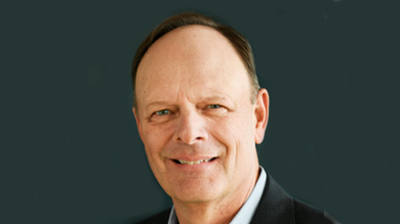
Sustainability equals opportunity in the global green economy and companies that adapt will be the first to thrive during the pandemic recovery. That is the message from Tom Meredith, Chief Commercial Officer at international asset finance partner DLL, as it focuses on supporting businesses with equipment, technology, and software to help them grow.
He is responsible for the company’s commercial strategy and global business activities in eight key industry sectors covering food, agriculture, office technology, construction, transportation, industrial, healthcare, and clean technology, with each sector having its own unique potential.
Sustainability is a common thread linking global markets, he says.
“We analysed the outlook among our major global vendors, and they all have the same view on sustainability of which is that we need to become a more sustainable world and we all play a part in achieving that ambition. This creates opportunities for financial solutions linked to sustainability.”
His comments come as DLL reports strong results for the 2021 business year, with net profits of €586 million, a 226% increase on the prior year amid both portfolio and income growth. DLL’s total portfolio balance grew by 3% to €37.4 billion.
Way ahead
Potential strategic paths include pay-per-use products or used asset finance, as part of support for the circular economy, which prioritises repair, reuse and recycling of assets to keep materials in use for longer and avoid waste going to landfill.
Every industry sector can benefit, with some being further ahead than others, such as the copier market where pay per use (PPU) has been embedded as a finance option for years.
The key is to support equipment dealers in offering a wider range of services to customers that go beyond solely supplying new products.
Data and digitalisation will be critical to success, he adds.
“It is critically important that we co-create PPU solutions with our vendor partners , as these solutions are very data driven. If equipment can’t share data, it becomes much harder to develop solutions.”
It will also require a new approach to accounting and risk, particularly for pay-per-use services, where revenues may come from an asset being used by numerous customers during its lifetime, instead of being sold and financed by an individual client.
This brings new challenges for finance providers and manufacturers, such as utilisation risk linked to contracts if customers don’t use an asset as much as expected.
DLL’s ambition is to make financing a driver for the selling process of customers and to enhance their end-user experience, so it makes sense to offer a range of funding methods backed by innovation. Embracing digital transformation is also a key part of the process.
Meredith said: “Digital Transformation is not just adding digital technology; it is about changing mindsets, behaviour and skills throughout the organisation, in every department, with every DLL member. It is about leveraging talent and working cross functionally, as well as embracing a culture of innovation and driving agile processes. We understand these changes are critical to ours and our customers’ success.”
With an eye to the future, DLL will continue to support customers as they negotiate the new business landscape.
Meredith concluded: “In today’s world, companies have to adapt, and those that do so successfully will continue to thrive.”

